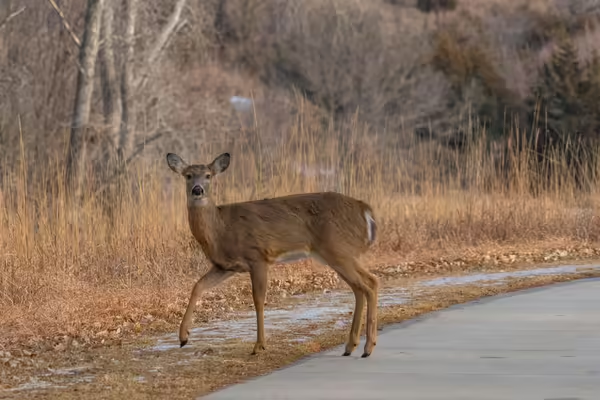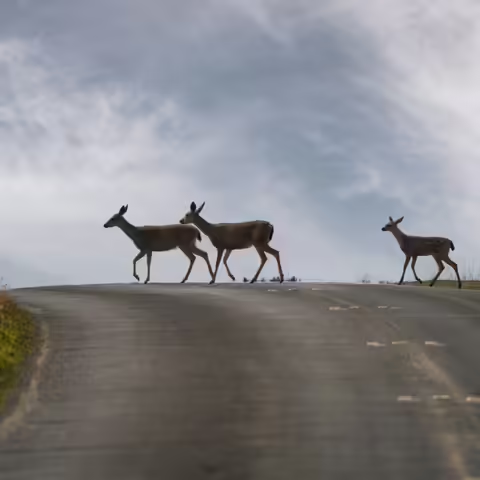
URBANA, Ill. — While accidents can happen at any time of year, most deer-vehicle incidents occur between dusk and dawn during the months of October, November, and December. Drivers should slow down and stay alert to avoid deer-vehicle collisions this fall when traveling after dark.
Not all deer-vehicle accidents can be prevented, but drivers can reduce their chances of a collision by understanding basic deer behavior and being proactive.
Illinois deer hunting season is underway now through mid-January, so deer are on the move more, says Peggy Doty, University of Illinois Extension educator in Energy and Environmental Stewardship.
“White-tailed deer are crepuscular, which means they are most active during dusk and dawn,” Doty says. “In addition, harvest is happening in some parts of the state, which removes many acres of cover for the animals, forcing them to be on the move.”
At 100 to 250 pounds, white-tailed deer are Illinois’ largest mammal, according to the Illinois Department of Natural Resources website Wildlife Illinois. The largest populations of deer in Illinois are in wooded areas in watersheds of the major rivers, especially the Mississippi, Rock, Illinois, and Kaskaskia rivers, and in the Shawnee Hills in southern Illinois.
When driving at night, reduce your speed, keep a safe distance from other vehicles, and be prepared to stop.
Watch out for deer in areas where they have been spotted in the past. Deer crossing signs are an indicator of this but roadways close to woodlots, field edges, or water also require extra caution. Scan roadsides for “eyeshine,” which is the reflection of headlights in the deer’s eyes, and use high-beam lights when appropriate.
If a deer crosses the road, slow down; there may be more deer, or they might double back. Alert other motorists to the presence of deer by tapping your brakes or using emergency flashers.
Avoid slamming on the brakes or swerving into traffic or off the road if deer are on the roadway. This can cause a loss of control of the vehicle. Instead, slow to a stop and wait for the deer to move. Flash your headlights and honk the car horn in short bursts to encourage deer to move off the road.
If a deer is struck, safely pull off the road and assess the situation. Call 911 if the deer is injured. It is illegal for anyone except a law enforcement officer to kill a crippled deer.
Deer killed from a vehicle collision legally can be claimed by any Illinois citizen. Claims must be reported within 24 hours by calling (217) 782-6431 or online at deer.wildlifeillinois.org.
SOURCES: Peggy Doty, Extension educator, natural resources, environment and energy; Wildlife Illinois, White-Tailed Deer Illinois
